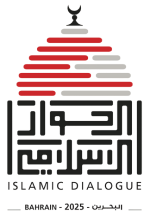The Intra-Islamic Dialogue Conference concluded with a final statement emphasising the importance of Islamic unity and constructive engagement to address common challenges. Participants expressed appreciation to His Majesty King Hamad bin Isa Al Khalifa for the royal patronage and Bahrain for hosting the event. They also extended appreciation to His Eminence Dr. Ahmed Al Tayyeb, Grand Imam of Al Azhar Al Sharif and Chairman of the Muslim Council of Elders, for his presence and contributions, as well as to the Supreme Council for Islamic Affairs for its hospitality and organisation.
The final statement stressed that Islamic unity is a shared responsibility and that mutual understanding and cooperation are essential for fostering Islamic fraternity. It called for a dialogue that is not focused on theological debate but rather on practical engagement that embraces the many shared elements of unity in confronting contemporary challenges.
Participants underscored the need for cooperation among religious, academic, intellectual, and media institutions to counter hate speech and sectarian incitement. The statement condemned all forms of insult and cursing, and called for a firm stance against expressions of hostility from all sects. It also acknowledged that historical and intellectual discourse within various Islamic traditions contains interpretative errors that should be critically reviewed, encouraging scholars to engage in self-assessment to continue the work initiated by earlier Islamic scholars.
The conference called for collective efforts to address key issues affecting the Islamic nation, particularly support for Palestine, resistance to occupation, and combating poverty and extremism. It highlighted that when Muslims from diverse sects work together on these critical issues, sectarian disputes naturally diminish under the banner of Islamic solidarity, as urged by the Holy Quran.
Participants urged leading Islamic institutions to develop a comprehensive study documenting areas of consensus in Islamic “Aqeeda” (doctrine), “Sharia” (law), and values. They noted that such an initiative would strengthen self awareness among Muslim communities, improve mutual perceptions, and enhance shared Islamic culture and humanitarian engagement.
The statement highlighted the need for unity to be institutionalised, starting with education and extending to religious discourse, sermons, and media representation. It called for practical measures to instil a culture of understanding, including curricula that teach the ethics of disagreement, platforms that counter hate speech, and collaborative social and developmental projects.
The conference also recognised the role of women in fostering unity, whether within families or through their contributions in education and society. It called for a renewed approach to intra-Islamic dialogue that incorporates youth perspectives and modern communication tools, ensuring that religious discourse resonates with digital-age realities and reflects the aspirations of young Muslims in an evolving world.
Participants recommended the establishment of dedicated committees within major Islamic institutions to facilitate dialogue among Muslim youth from various sects. This initiative aims to organise youth-led programmes, connect Muslim youth in the West with their Islamic heritage, and promote positive representations of their religious identity while addressing sectarian misperceptions. The conference also highlighted the importance of institutional and scholarly initiatives to dismantle stereotypes, reduce tensions, and combat Islamophobia as a means to enhance the global perception of Muslims and foster greater unity within the Islamic nation.
The conference proposed the creation of an “Islamic Dialogue Association” under the Muslim Council of Elders to serve as a platform for open communication among all components of the Islamic nation without exclusion. This initiative draws from the prophetic tradition that defines the Muslim nation as a unified entity.
Additionally, the event launched a declaration titled “Nida’ Ahl Al Qibla” (Call of the Qibla People), advocating for a unified religious discourse under the theme One Nation, One Shared Destiny.
The General Secretariat of the Muslim Council of Elders announced that it will oversee the formation of a joint committee for Islamic dialogue, ensuring the implementation of the conference’s resolutions. It also confirmed that preparations will commence, in coordination with Al Azhar Al Sharif, to organise the second Intra-Islamic Dialogue Conference in Cairo, in line with the announcement made by the Grand Imam, His Eminence Dr. Ahmed Al Tayyeb, during the conference.



